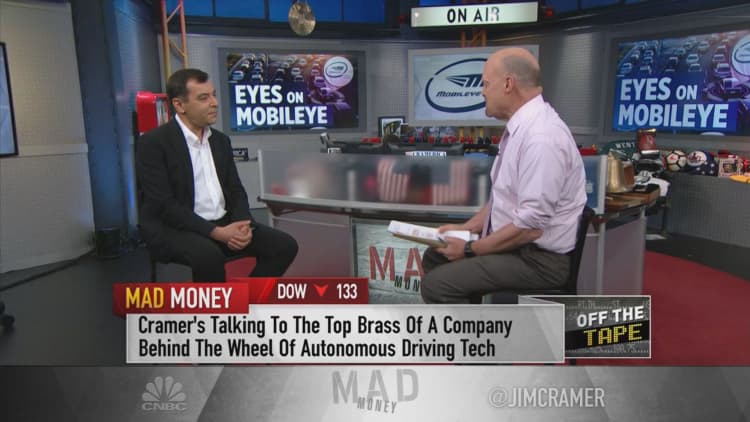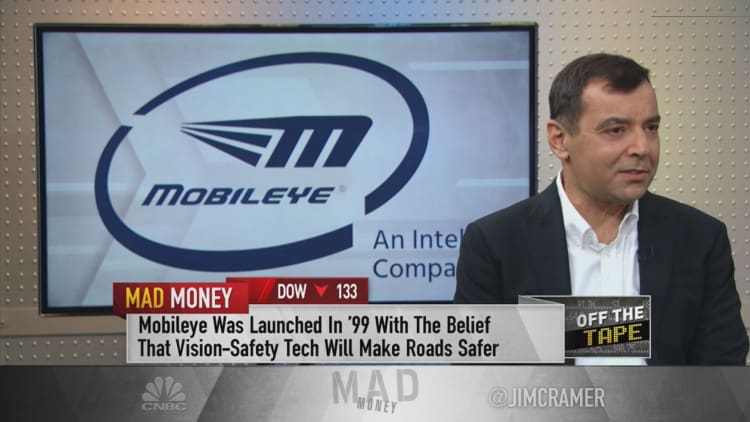
Public streets could get a fresh look via the world of autonomous vehicles in roughly the next two years.
Self-driving technology supplier Mobileye CEO Amnon Shashua told CNBC Friday that the first phase of autonomous driving will come in the form of cab services.
"Robotaxi is not that far away," he said in a "Mad Money" interview. "We are targeting early 2022."
The roll-out of self-driving cars must be marketed to fleet operators before it will be available to the general public, Shashua explained to show host Jim Cramer. Think Uber, Lyft and other ride-hailing companies.
The company is projecting that the consumer market could come as soon as 2025. That market will be the last stage due to regulatory and cost constraints, he said.
"It's much easier to regulate an operator that operates a fleet of such vehicles because then you have reporting responsibilities" and other factors "that you cannot put on a consumer," Shashua said.
When it comes to price, self-driving systems can set you back tens of thousands of dollars, he added. That includes sensors, computations, cables and other parts of the apparatus designed to guide the car that does not require human control.
"When you think about the cost of the technology — the self-driving system — today it's somewhere between $15,000 - $40,000 per car," Shashua said. "That's O.K. for a robotaxi. It's not O.K. for a consumer. But if you bring it down to about $5,000, which we believe we can do … by 2025, then it starts becoming interesting at the consumer level."
Some of the recognizable names looking to capitalize on the self-driving taxi business include Uber, Lyft, Tesla and Waymo under Alphabet-subsidiary Google. The driverless arena known as MaaS, or "mobility as a service," could represent a $160 billion total addressable market by 2030.
Mobileye, which Intel paid $15.3 billion for in 2017, has development projects underway in Israel, China, France and just announced a new deal in South Korea. The company is working on development projects with Volkswagen, Champion Motors, Nio and other car manufacturers around te globe.
Shashua said driverless cars will revolutionize the transportation industry to save lives and money.
"If more cars will be autonomous, more lives would be saved. A computer will do a better job than a human, eventually," he said. "It will even rival the cost of public transportation. So all that we know about transportation will change if we can make it work."

Disclosure: Cramer's charitable trust owns shares of Alphabet.
Questions for Cramer?
Call Cramer: 1-800-743-CNBC
Want to take a deep dive into Cramer's world? Hit him up!
Mad Money Twitter - Jim Cramer Twitter - Facebook - Instagram
Questions, comments, suggestions for the "Mad Money" website? madcap@cnbc.com



